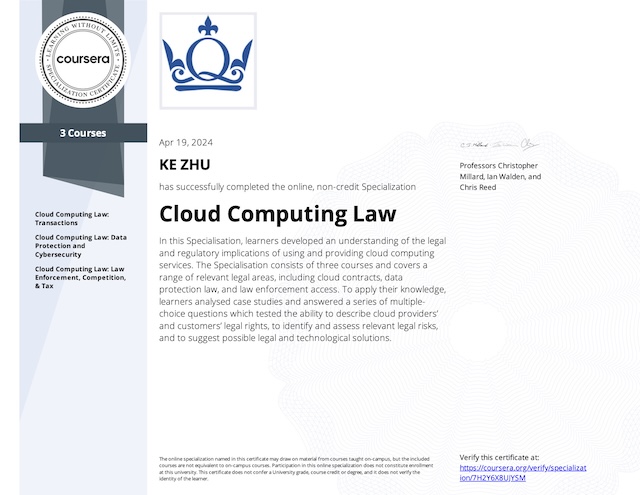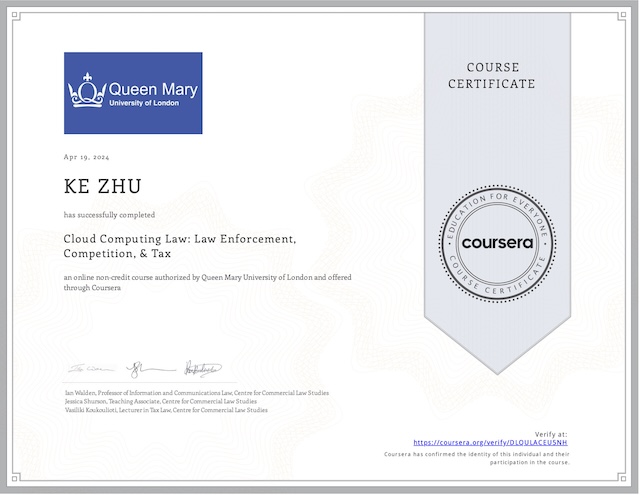Agency
Agency is nothing more than the idea that you give somebody else authority to act on your behave. There is a principal (the person in charge) and an agent (who takes on some responsibility from the principal). There are 4 types of common agency relationship:
- Express – you affirmatively tell a person that you want them to do something on your behalf.
- power of attorney
- Implied – reasonably assumed even without explicit agency relationship
- Ratification – ratifying previous actions that were done without any relationship
- Apparent – when a third party reasonably believe somebody is your agent
Agent’s Duties
- Obedience – duty to obey what principal asks them to do.
- Notify – any knowledge that agent happens to come by in the scope of his / her duties, is imputed to the principal.
- Account – agent is able to give principal a complete accounting about how they are using principal’s resources.
- Loyalty – you can not enrich yourself at the expense of others
Agent’s Rights
- Accounting – ask principal for an accounting how the compensation is calculated
- Tort and contractual rights – depend on the agreement
Principal’s Duties
- Compensate – most of the time agent does not doing for free
- Reimburse – for the money you spent out-of-pocket on behalf of the principal
- Indemnify – if the agent gets sued for something they did within the scope of this agency relationship
- Cooperate – provide information and resources that agent needs
Principle’s Rights
- Indemnification – agent might have to pay for the principal’s fees and costs
- Avoidance – nullify any agreements if agent breaches his / her duties
- Constructive trust – principal has rights to the profits if which is gained because agent breached duty of loyalty
Tort Liability
Tort means a wrongful action that causes damage and injury. Generally agent is not liable for principal’s torts, but principal is almost always liable for agent’s torts in the scope of agency relationship, called Respondeat Superior or vicarious liability in English. A few special rules apply:
- Frolic and detour – if agent takes a long enough detour from the interest of the principal, who will not be liable.
- Dual-purpose missions – if agent does something benefits both themselves and principal, who will be liable.
- Coming and going rule – agent is liable for torts committed when come to or going from work, principal is not.
- Intentional torts – depend on what state you are in
Contract Liability
General rule is agent is liable only when the principal is not disclosed, and principal is liable if agency relationship exists or when principle made the 3rd party reasonably believe it exists (apparent agency).
Agency Termination
Principles are always required to give notice to anybody else who might require notice. Agency shall be terminated in an acceptable manner and an acceptable time, otherwise it is a wrongful termination. Methods of termination include:
- action of parties
- unusual change in circumstances
- operation of law
Employee Rights
- Right to safety in workplace
- worker’s compensation – for work-related injuries
- Occupational Safety and Health Administration
- Child labor (Fair Labor Standards Act)
- Right to financial security
- FLSA: minimum wage, overtime, exemptions
- Family and Medical Leave Act
- Right to be free from discrimination
- Title VII of Civil Rights Act of 1964: race, color, national origin, sex, religion
- Age Discrimination in Employee Act
- Americans With Disability Act
- Right to Privacy
- employers are not allowed to monitor employees’ communication
- exception 1: if employer provides the means of communication
- exception 2: if employee consents to monitoring
- employee screening
- public social media – OK
- lie detectors test – prohibited
- drug test – OK
- background check – OK
- health record and genetic information – HIPAA, GINA
- employers are not allowed to monitor employees’ communication
Labor Union
A labor union is a group of similarly situated employees to band together to demand wages, benefits. Management in a company can usually not unionize. Forming a union is quite complicated process:
- identify a bargaining units – a group of similarly situated employees.
- hold an election – decide whether would like to create a union
- a long and arduous process of collaborative bargaining – the final agreement is called collective bargaining agreement
- mandatory subjects
- permissive subjects
- illegal subjects
Type of business unions include:
- closed shop is illegal (requires the company to employ only members from the union)
- agency shop (new employee has the option to join the union, if they don’t they have to pay fair share fee)
- union shop (every new employee must join the union. not applicable in a ‘right to work’ state)
Labor actions
Striking and picketing are work stoppage by the employees. Union must give employer 60 days notice (cooling period) before they strike. The types of striking include:
- economic strikes
- unfair labor practices strikes
- sympathy strikes
- partial strikes
- sickout
The employers can ask employees to be strikebreakers, hire replacement, and fire striking employees ONLY if the strike is unlawful. Even though employer can not fire them, usually don’t have obligations to return them to their old positions.
My Certificate
For more on agency and employment law, please refer to the wonderful course here https://www.coursera.org/learn/corporate-commercial-law-part1
Related Quick Recap
I am Kesler Zhu, thank you for visiting my website. Checkout more course reviews at https://KZHU.ai



